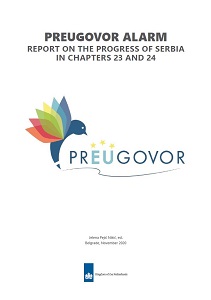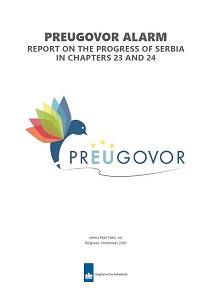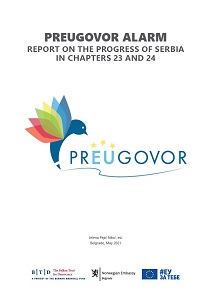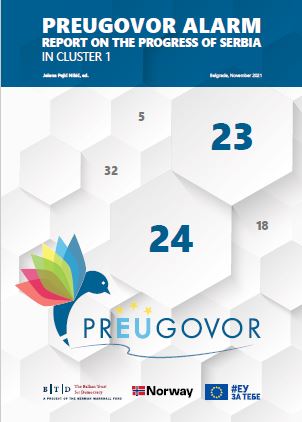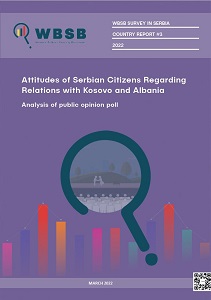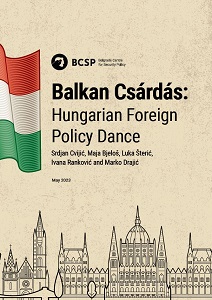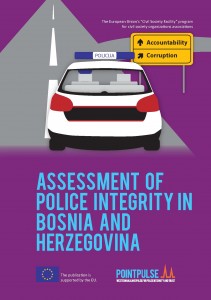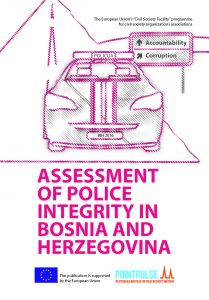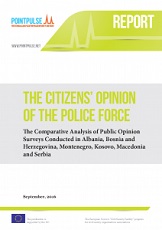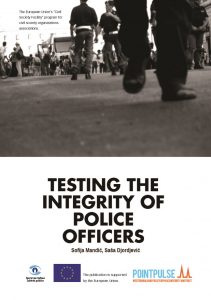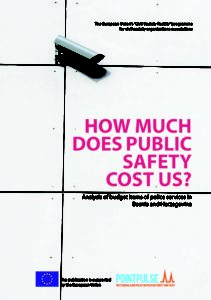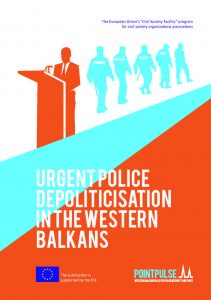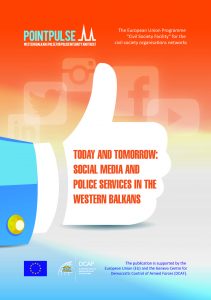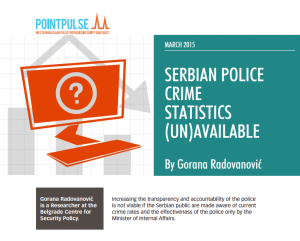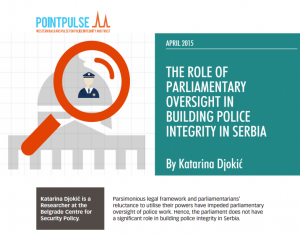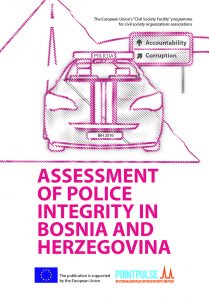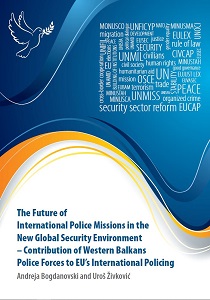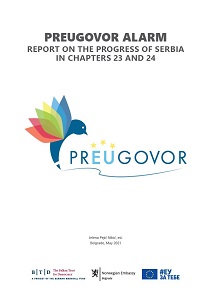
PREUGOVOR ALARM: REPORT ON PROGRESS OF SERBIA IN CHAPTERS 23 AND 24 (September 2019)
PREUGOVOR ALARM: REPORT ON PROGRESS OF SERBIA IN CHAPTERS 23 AND 24 (September 2019)
Keywords: PrEUgovor; prEUnup; European Union; Serbia; international relations; EU integration
This report contains the prEUgovor coalition’s assessment of the political criteria for the EU accession process and the fulfilment of criteria for selected policy areas from Chapters 23 and 24 for the period April 2019 – September 2019. Key findings indicate that the tendency of deterioration continues in most fields. The Government continues to consider only formal criteria, while in substance its primal concern is that the opposition does not boycott the elections, as that would send a bad message about the state of democracy in the country. Accordingly, the functioning of institutions, the Rule of Law, and the building of social consensus are not priorities that affect the Government’s understanding of European integration. The government is struggling not only to deliver what it had promised; formal commitments, benchmarks, as well as the adoption and extension of specific strategies and action plans are also inadequate and insufficient. The fight against corruption is characterised by the absence of a strategic framework and lack of political will and effective monitoring. Regulatory bodies responsible for control remain inactive and are not provided with sufficient support. Implementation of the law is a growing problem in all fields. The election process is also highly controversial. The ruling party continues to misuse state resources and offices for its propaganda and electoral needs, which involves various forms of pressure on public sector employees, including, for example, the obligation to attend the ruling party’s political rallies. Regulatory Body for Electronic Media, Anti-Corruption Agency and other control and regulatory bodies are not performing their functions; as a result, after unsuccessful negotiations most of the real political opposition announced a boycott of the next parliamentary elections. The number of laws passed under urgent procedure has been reduced, but the majorisation of the opposition continues, while key positions in agencies and independent regulatory bodies still remain to be filled. The ruling party MPs and the government-controlled media (in other words, the majority of the national media) continue to call the opposition, the non-governmental sector and some university professors traitors, thus marking them as legitimate targets of attack. Instead of opening a dialogue with them, government officials started promoting their own GONGOs (Government-Organised Non-Governmental Organisations) and their “opposition” political parties. Even judges who dare to openly criticise draft laws are in jeopardy of being dragged through the mud and discredited. The adoption of constitutional amendments concerning the judiciary is once again delayed. The amendments that were proposed by the Ministry of Justice do not introduce an adequate minimum standard of judicial independence. Developments in the security sector’s regulative area are disturbing. The new laws reduce the transparency of governance in this sector, and increase the discretionary powers of politicians with regard to procurement and employment. Control mechanisms of the sector’s public procurements and corruption are diminishing, while the number of large procurements is increasing, as well as the number of large contracts concluded outside of the established procedure. The new Law on Communal Militia is also alarming. It significantly expands the powers of this formation and gives local mayors greater discretionary powers over it, leaving much room for potential abuse.
More...
